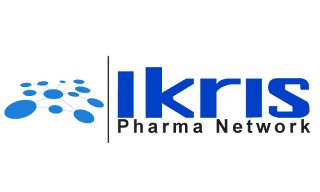What is hepatic encephalopathy?
Hepatic Encephalopathy is a condition that develops in individuals with cirrhosis who have a damaged liver, which usually cannot eliminate toxins as a healthy liver would. These toxins move through the body until they reach the brain and then they damage the brain and cause Hepatic Encephalopathy.
What are the hepatic encephalopathy symptoms?
Signs and symptoms of moderate HE (Hepatic Encephalopathy) are:
- Difficulty thinking
- Personality changes
- Lack of concentration
- Confusion
- Forgetfulness
- Lack of judgment
- Sweet breath odor
- Confusion
- Drowsiness
- Lethargy
- Anxiety
- Seizures
- Fatigue
- Confused speech
- Shaky hands
- Slow movements
- Severe changes in personality
- Stage 1: (Mild HE): Patients may experience sleep problems, trouble concentrating and may have mood swings.
- Stage 2: (Moderate HE): Patients may feel exhausted, have problems with basic math, and may react strangely. Hands might be shaking, and have difficulty writing.
- Stage 3: (Severe HE): Patients may be very sleepy and sometimes pass out. They are unable to do basic math at all. They may act strange and may be very fearful as well as jumpy.
- Stage 4: (Coma): The last stage of hepatic encephalopathy is coma, means the patient is unconscious.
Eligibility criteria: To be suitable/eligible for treatment with Rifaximin the patient must:
be established, with an appropriate therapeutic trial (at least 30 days), on a dose of lactulose (up to a maximum dose of 30 mL QID) that achieves 2 to 3 semi-formed stools daily, unless not tolerated.
be aged 18 years or older.
have experienced, in the last 6 months, at least 2 episodes of overt hepatic encephalopathy (Conn score ≥ 2) related to hepatic cirrhosis.
be in remission of Hepatic Encephalopathy (Conn score ≤1) with a MELD or Model for End-Stage Liver Disease score ≤ 25.
Exclusion criteria: Patients should be excluded from the treatment with rifaximin if:
liver transplant is awaited within 30 days.
lactulose has not been appropriately trialled because of non-compliance.
an ongoing infection or active spontaneous bacterial peritonitis or
Hepatic Encephalopathy is caused by a reversible precipitating cause.
Treatment:
Should all the patients fulfil the requirements mentioned above, rifaximin treatment may be commenced at 550 mg twice in day, with or without meals, either as an inpatient or outpatient.
Treatment with lactulose should continue as tolerated, maintaining a response of 2 to 3 semi-formed stools daily.
Treatment may only be begun by an experienced Consultant Hepatologist. Rifaximin therapy needs to be reviewed on a regular basis at least every 3 months (90 days); where there is establishment of disease progression or no evidence of clinical benefit has been seen within a six month time-span treatment needs to be ceased.
- Dizziness
- Hands
- Gas
- Headache
- Low Energy
- Nausea
- Stomach Cramps
- rifaximin 200 mg
- rifaximin 550 mg
- rifaximin Rifagut 400 mg






This comment has been removed by a blog administrator.
ReplyDelete